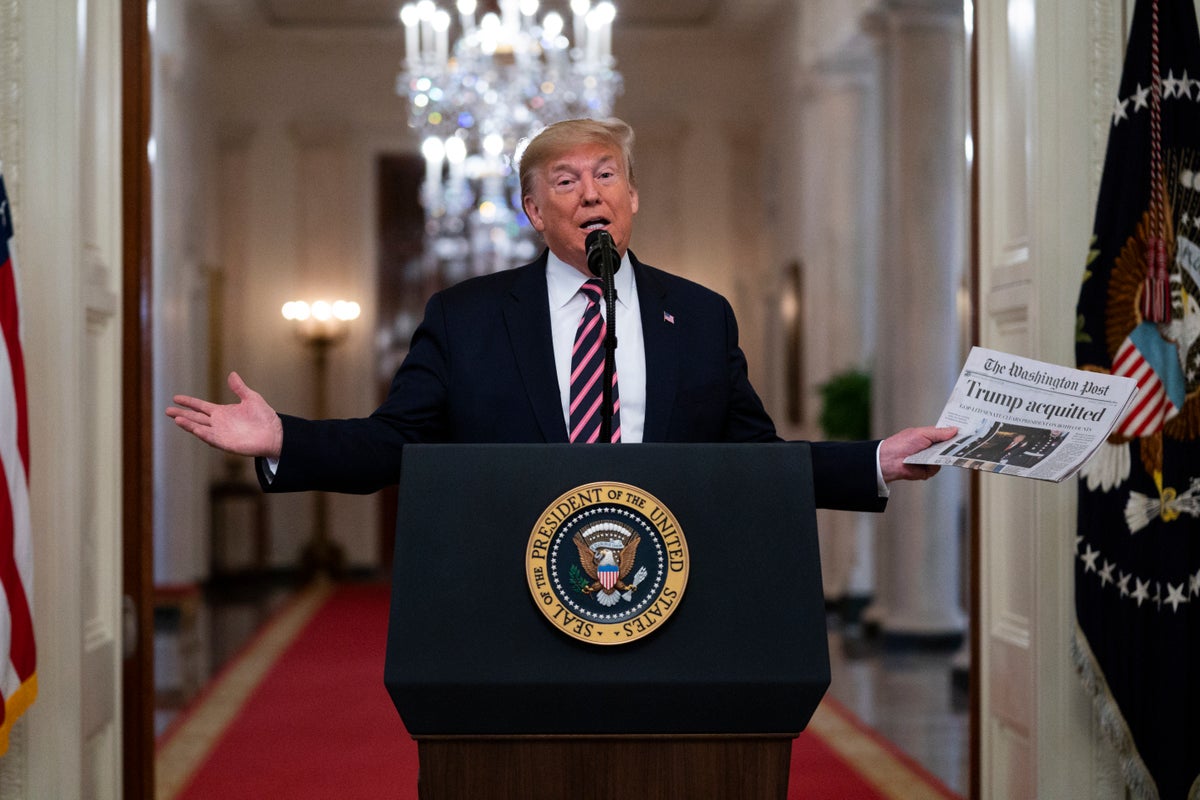
The bumbling, slapdash efforts of former president Donald Trump’s defence team during his first impeachment trial left Republican senators aghast and scrambling to prevent them from leading Mr Trump into disaster, a new book reveals.
Per excerpts of Unchecked: The Untold Story Behind Congress’s Botched Impeachments of Donald Trump by Politico’s Rachael Bade andThe Washington Post’s Karoun Demirjian, Republican senators were apparently much more involved in Trump’s defense in his first impeachment trial than initially thought.
The excerpts, which were first reported on by HuffPost, include a behind-the-scenes look at what happened after Mr Trump’s lawyers attempted to claim that there wasn’t a quid pro quo happening with Ukraine when the former president withheld military aid to the country until Ukrainian president Volodymyr Zelensky announced sham investigations into Joe Biden and his son Hunter.
The lawyers’ incompetence did not impress the GOP senators, who were sworn in as jurors at the start of his first impeachment trial, and even drove some of them to profanity.
Ex-Harvard law professor Alan Dershowitz argued that the then-president would’ve been justified in committing illegal acts to further his re-election campaign if he believed doing so was in the public interest. Afterwards, Missouri Senator Roy Blunt told Mr Trump’s team to fire the retired professor right then and there.
Senator Ted Cruz of Texas also pushed back on Mr Trump’s defence.
“Out of one hundred senators, you have zero who believe you that there was no quid pro quo. None. There’s not a single one,” Mr Cruz reportedly said per HuffPost.
And after Mr Trump’s lawyers dropped the ball on answering a question about calling witnesses, South Carolina Republican Lindsey Graham lost his cool as he entered the Senate GOP cloakroom.
“We are f**ked! We are f**ked!” he reportedly said.
Notably, these responses were drastically different from what was being conveyed publicly. Many GOP senators cited their responsibility to be neutral jurors and declined requests from reporters to comment on the proceedings.







